Help Protect Our Local Waters
HOW CAN YOU HELP PROTECT OUR LOCAL WATERS
Water
- Install dual flush, waterless or composting toilets in your home.
- Check for leaks in your toilet, faucets, showerheads, hoses and pipes.
- Install low-flow faucet aerators and water- saving showerheads, which use 2 gallons of water per minute compared to normal showerheads which use 5 gallons per minute.
- Don’t rinse dishes before putting in the dishwasher – you’ll save up to 20 gallons of water per load. Only run your dishwasher and washing machine with full loads.
- Don’t let water run while brushing your teeth, washing your face or shaving, and try to limit showers to five minutes.
- Use natural dishwashing and laundry soaps or soaps low in phosphate to help control algal growth in the aquatic environment.
Wastewater Issues and Septic Systems
- Install an innovative/alternative or advanced nitrogen-removing septic system. Title 5 septic systems do not remove enough nitrogen from household wastewater.
- Check that your current septic system is operating properly and have it pumped out regularly to remove sludge (every three to five years).
- Compost kitchen wastes. Food solids and grease dumped down drains can inhibit the bacteria in your septic system from breaking down the sludge.
- Rethink garbage disposals – grease and organic matter can negatively impact your septic system.
- Get involved in community and regional wastewater management plans.
- Dispose of chemicals, medicines, bleach and hazardous materials properly, don’t dump them down your drain or toilet. Check at your local transfer station for special hazardous waste collection dates
Lawns and Gardens
- Apply less chemical fertilizers, pesticides, and herbicides: or use none at all.
- If you use fertilizer, use organic or slow-release nitrogen fertilizer.
- Buy fertilizer with WIN (water insoluble nitrogen) rather than WSN (water soluble nitrogen). Fertilize lawns once a year in the fall.
- Pull weeds out by hand, instead of using herbicides.
- Mow your lawn as high as possible (3 inches or more).
- Recycle grass clippings – leave on lawn as mulch or put in compost pile.
- Use native grasses like perennial rye, and fine and tall fescues.
- Promote the concept of a natural Cape Cod lawn, instead of a perfectly manicured green lawn.
- Mulch plants and garden beds to help retain moisture.
- Rethink your landscape – plant less turf/grass, use native plantings that attract and benefit wildlife, and choose drought-tolerant plants.
- Water once a week, early in the morning, to avoid water loss due to evaporation. Healthy lawns only need about an inch of water a week.
- Switch to a drip irrigation system – it’s more efficient.
- Instead of paving, use crushed shells, stones or plants on your walkways and driveways to reduce runoff and help retain water.
- If you must clean walkways and driveways, use a broom – not water.
- Plant more trees to help control erosion, absorb rainwater, and capture atmospheric nitrogen and pollutants.
- Start a compost pile to make organic matter for use in your gardens.
- Divert rain water from your roof into rain barrels or gardens.
- Use car washes, but if you do wash your car at home, do it on grass or gravel to reduce runoff into storm drains.
Boats
- Secure trash and don’t let trash blow overboard.
- Please pump, don’t dump - your boat sewage wastes are harmful to the environment and should be properly disposed of by a pump out boat or at a pump out facility.
- Don’t pump oily bilge water overboard – keep bilge water clean with oil-absorbent materials.
Beaches and Waterways
- Clean up litter along beaches, town landings and other waterways.
- Adopt a local beach or boat launch in your town, and organize monthly clean-ups at these sites.
- Pick up after your pet as animal wastes contribute unwanted nitrogen to our local waters.
Please don’t release balloons and sky lanterns – they wash up on beaches, float in coastal waters and are harmful to wildlife.
Energy
- When cooking, use the smallest pan necessary - they use less energy.
- Switch from incandescent to LEDs or compact fluorescent light bulbs (CFLs), which last 12 times longer and reduce pollution. CFLs contain mercury, please dispose of properly.
- Use cold water when washing clothes.
- Hang clothes on racks or clotheslines to dry.
Buy Energy Star-qualified appliances as needed. - Drive less. Walk, bike and paddle more.
Consider buying a hybrid, electric or the most fuel efficient car you can afford. - Turn your thermostat down 1-3 degrees in winter and up 1-3 degrees in summer.
- Insulate your hot water heater and pipes.
- Make sure your home is properly insulated and check around windows for leaks.
- Remember to turn off lights and electrical devices when not in use, especially computers.
- Unplug chargers and other small appliances when not in use.
- Recycle and reduce CO2 emissions. Every 10 aluminum and steel cans recycled saves 4lbs. of CO2. Every 10 glass bottles recycled saves 3lbs. of CO2. If you recycle that many cans and bottles every week, you would save over 350lbs. of CO2 per year.
Buy recycled products, use your own tote bags instead of plastic or paper bags, reuse paper for notes – make a difference for the environment with all of these simple actions.

